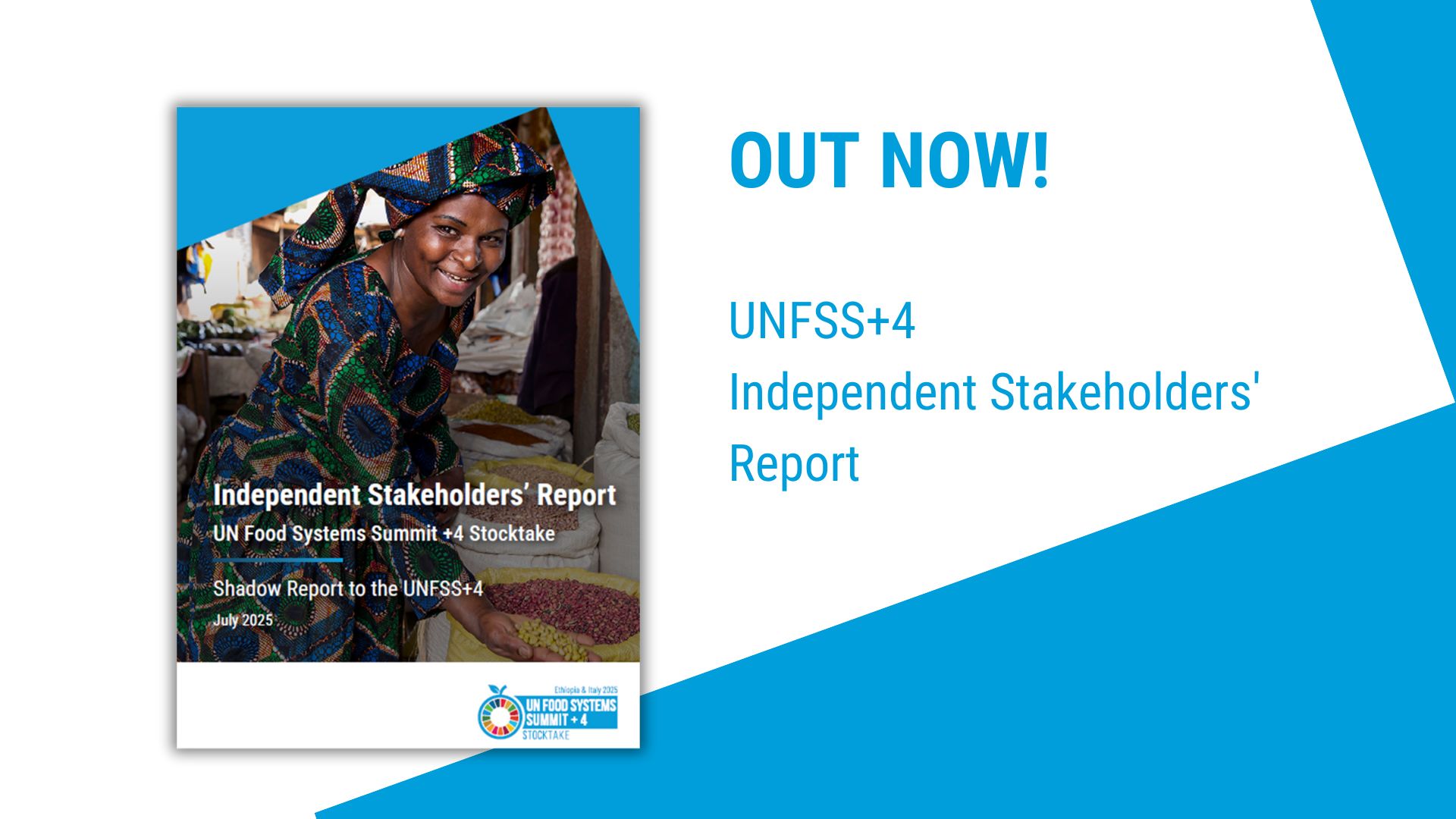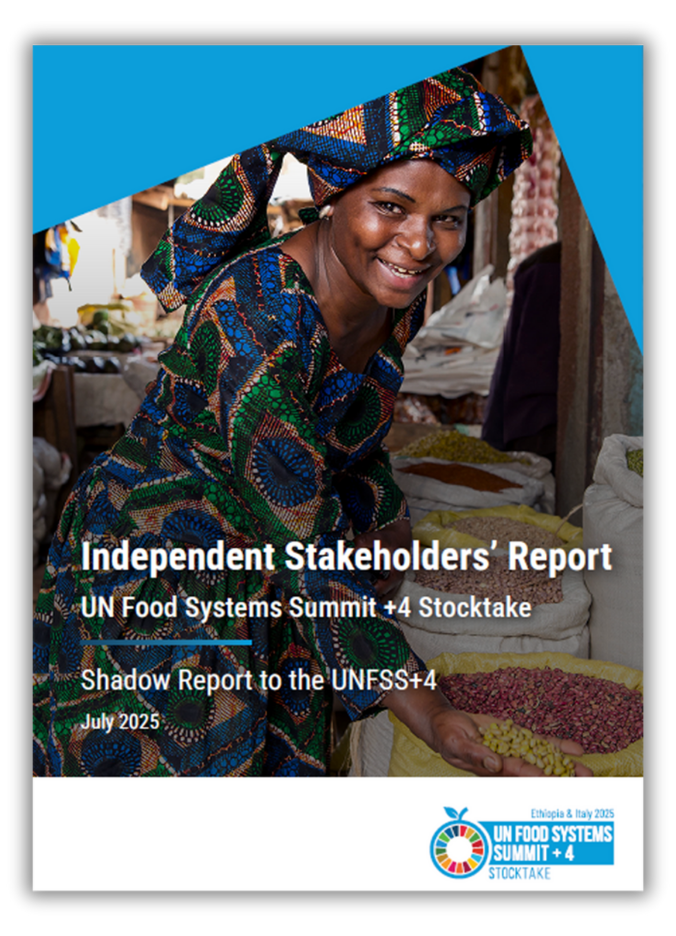Stakeholders call for more inclusive and accountable food systems transformation in new UNFSS+4 report

Four years since the UN Food Systems Summit launched a global movement to transform the world’s food systems—to make them more efficient, inclusive, resilient and sustainable in support of the 2030 Agenda—the Independent Stakeholders’ Report for UNFSS+4 delivers a clear message: progress is underway, but food systems transformation must become more inclusive, better aligned with global commitments, and grounded in rights-based, accountable governance.
The report captures the views and experiences of hundreds of stakeholders from over 75 countries, gathered through an open questionnaire, public consultation and direct submissions. Contributors include farmers, women and youth, Non-Governmental Organizations, trade unions, academia, the scientific community, the private sector and more. Their contributions highlight both the positive change underway and the persistent structural barriers that continue to hold back progress.
Across submissions, stakeholders call for stronger inclusion of marginalized groups, especially women and youth, in food systems decision-making. They highlight the need to move beyond symbolic participation toward co-governance, with formal roles, long-term engagement and dedicated financing. Multistakeholder platforms and coalitions are widely recognized as key vehicles for collaboration.
Submissions expressed strong expectations for the UNFSS+4 to advance greater alignment between national food systems pathways and global frameworks, including the SDGs, Nationally Determined Contributions (NDCs), and the outcomes of COP30. Food systems, stakeholders insist, must be recognized as central to achieving climate, biodiversity, health, and development goals.
Despite the growing momentum, many stakeholders still lack time-bound, measurable commitments and established monitoring frameworks—an area where only some actors have made notable strides. This gap reflects broader challenges such as limited institutional capacity, low prioritization, and limited awareness of the value of trackable commitments. Nevertheless, stakeholders have established a dense and dynamic web of partnerships that provide a strong foundation for more strategic and coordinated result-driven action.
Finance is identified as both a critical enabler and a significant obstacle. Stakeholders shared examples of how resources have been mobilized through partnerships, blended finance, and targeted fundraising, often leveraging tools such as climate finance, government programmes, and donor-backed research. However, smaller actors continue to face major barriers, including fragmented and short-term funding mechanisms, limited access to networks and information, and donor priorities that do not always reflect local needs. The report calls for a comprehensive financial approach, including innovative and microfinance solutions, alignment with national policies, and greater use of global platforms. Stakeholders emphasize that investment must be accompanied by coordination, technical support and long-term engagement to be effective.
The report sets the stage for the upcoming UNFSS+4 in Addis Ababa, co-hosted by Ethiopia and Italy, where the international community will assess progress and chart the next steps.
 | Read the full report: EnglishSummary report: English
|
